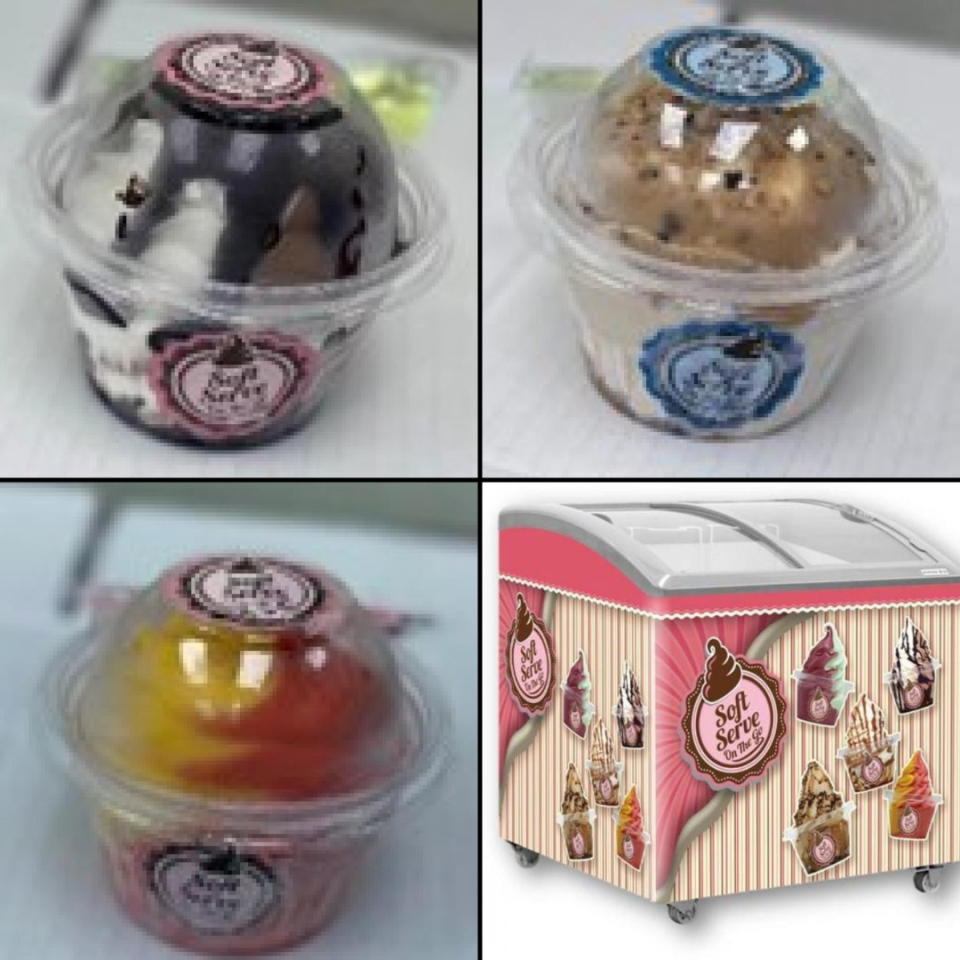Real Kosher Ice Cream recalled on-the-go cups over possible listeria contamination
Real Kosher Ice Cream of Brooklyn issued a recall on its Soft Serve On The Go ice cream and sorbet cups in Florida and several other states on Wednesday due to their potential to become contaminated with listeria monocytogenes.
The recall was issued after two people became ill after eating the product in New York and Pennsylvania, according to the U.S. Food and Drug Administration.
The Pennsylvania Department of Agriculture tested samples of the product and one sample tested positive for listeria monocytogenes.
Both people were hospitalized but no deaths have been reported.
Real Kosher Ice Cream has stopped the production and distribution of the product as it works with the FDA to investigate the cause of the issue.
Target recall: 2.2 million Threshold candles recalled; at least 1 injured
What Real Kosher Ice Cream product has been recalled?
All flavors of the Real Kosher Ice Cream Soft Serve On The Go cups have been recalled. These products are packaged in 8-ounce, clear plastic cups.
The products have minimal branding on them, but look like a soft serve cup such as those served in an ice cream store, with a clear plastic domed cover and a spoon attached to it.
The UPC is the only identifiable code on the package and there are no LOT numbers or “best by” dates on the product. UPCs for each product can be found on the FDA site.

What is listeria monocytogenes?
Listeria monocytogenes is a bacteria that can cause serious and sometimes fatal infections in pregnant women, young children, frail or elderly people and people with weakened immune systems, according to the Centers for Disease Control and Prevention.
What are the symptoms of listeria monocytogenes?
Symptoms in people with listeriosis, the name for the infection caused by listeria monocytogenes, sometimes begin with diarrhea or other gastrointestinal symptoms. Most people with the infection develop a fever and muscle aches.
People infected with listeriosis usually have an invasive infection, according to the CDC, which means that the bacteria will spread from their intestines to their blood, resulting in a bloodstream infection. It can also spread to the central nervous system, causing meningitis.
Symptoms usually appear a few days after eating contaminated food, however, the CDC says infection can sometimes take up to two months to appear.
COVID cases spike in Florida: Florida sees summer surge in COVID-19 cases. Here's why and a look at the latest guidelines
Can healthy people develop invasive listeriosis?
Healthy people can develop invasive listeriosis but it’s rare. Healthy people can develop a non-invasive illness if they are exposed to a large quantity of listeria, which is usually accompanied by diarrhea and fever.
How does listeriosis affect high-risk people?
High-risk people infected with listeria can experience fever, muscle aches, headache, stiff neck, confusion, loss of balance and convulsions.
How does listeriosis affect pregnant women?
Listeriosis symptoms in pregnant women are usually general and mild, consisting primarily of fever, chills and headaches. Infection should be taken seriously, however, as it can lead to miscarriage, stillbirth, premature delivery or life-threatening infection of the child.
What should I do if I’ve eaten food contaminated with listeria?
People who have eaten food contaminated with listeria but are not experiencing symptoms are likely safe, according to the CDC.
Healthy people experiencing mild symptoms may also not require treatment but should seek medical advice from their doctor.
People who believe they are seriously infected should contact their doctor for treatment.
How is listeriosis diagnosed?
Listeriosis is usually diagnosed by a blood test, but can also be diagnosed from samples of urine or spinal fluid, according to the Mayo Clinic.
How is Listeriosis treated?
Listeriosis is treated with antibiotics.
This article originally appeared on Pensacola News Journal: Real Kosher Ice Cream recalled in Florida due to possible listeria

